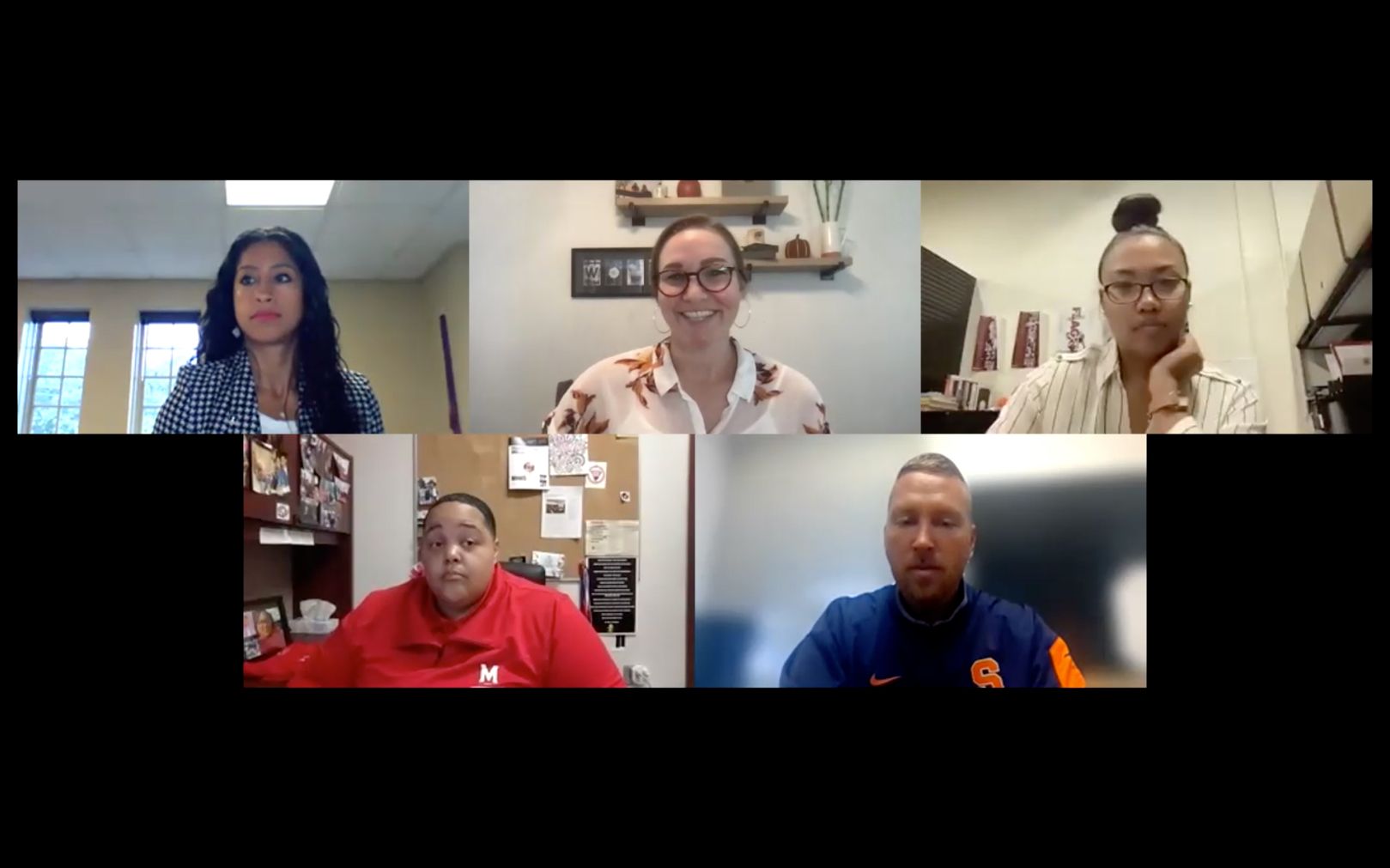The Future of Student-Athlete Development
Key Takeaways from the Webinar on 9/22
On Wednesday, September 22, 2021, we hosted a webinar on the “Future of Student-Athlete Development” featuring a panel of veteran student-athlete development professionals. Resa Lovelace (University of Maryland), Mark Trumbo (Syracuse University), Amanda Ekabutr (University of Massachusetts), and Liz Reyes (University of Illinois) joined us to talk about how the past and present are setting the stage for the future of student-athlete development programming.
We began our discussion by talking about the origins of student-athlete development. After all, it’s difficult to discuss the future when we haven’t recognized the past. In 1993, the NCAA launched its first attempt at creating more holistic programming for student-athletes at member institutions by launching their CHAMPS/Life Skills Program. CHAMPS, which stood for CHallenging Athletes’ Minds for Personal Success, was officially introduced to NCAA membership in the summer of 1994.
Our panelists each shared different experiences on when they first became aware of student-athlete development: from being introduced as an undergraduate at an HBCU to being introduced during time spent as an academic advisor and everything in between.
“I don’t know many professionals who have graduated college and said ‘I’m going into student-athlete development!’” – Mark Trumbo
Mark went on to say that student-athlete development professionals are fill-the-need type people, most of whom have been introduced to the field by a mentor.
As a field, student-athlete development has seen quite a bit of growth since 1993. Transitioning officially from CHAMPS/Life Skills to Student-Athlete Development in 2016, the past five years have been especially transformative for the field.

Personal & Educational Influences
For each individual who served on our panel — and for so many of us who work in the space — diverse experiences have shaped and impacted the way we think about student-athlete development, and ultimately, the way we shape our programming.
“My education has highly influenced how I perform every day… I would also say my experience in pro sports puts me in a position sometimes where I look at things differently — from a business standpoint or a point where we can enhance our brand.” – Liz Reyes
Being able to pull from a variety of experiences, both educational and professional, allows student-athlete development professionals to diversify the way they create programming on their campuses.
Pillars of Student-Athlete Development
Most student-athlete development shops have a set of pillars upon which they build their programming. There is no ‘one-size-fits-all’ when it comes to implementing programming, and our panelists expressed the importance of catering to the needs of their individual campuses and student-athlete populations.
“When we’re thinking of holistic development for our student-athletes, you need to nourish all parts of that.” – Amanda Ekabutr
Mark also mentioned that aligning both the university’s mission and the athletic department’s strategic plan (if it exists) with the mission of the student-athlete development program is crucial. Weaving the fabric of the institution into student-athlete development programming on your campus helps create intentional, individualized programming that is specific to your campus.
Market Drivers
Name, Image, and Likeness (NIL) has been the focus of almost everyone’s attention since earlier this year. However, there are additional market drivers that influence and impact student-athlete development as a field.
“Donor relations have also changed student-athlete development. I was able to get a gift for $20 million to be able to do the work that we do here [at Maryland]. We’ve also seen other institutions realize that student-athlete development is a space that donors want to be a part of – that they’re willing to stop putting money into facilities and putting money into the actual student.” – Resa Lovelace
In addition to NIL and donor interests, new health protocols that many student-athletes have experienced due to COVID-19 on their campuses have created a community void. Many are unable to connect with their teammates, peers, and athletic administrators like they did pre-pandemic, and the effects of that are driving change in the way student-athlete development professionals plan out their programming.
Future of the Field
With all the market drivers and changes to the field that have happened since its original inception in 1993, the next few years promises to be interesting. Our panelists touched on the increased importance of experiential learning and development in the future.
“The advancement of experiential learning has to be a part of the process… I think about what their life looks like after [their time at their] university, and they’re not getting a lot of workshops at work. It’s learning on the job… We teach a lot of aspects in controlled environments, but that’s not how they’re applied… Experiential learning over the next five years, I’d like to see an advancement of that.” – Mark Trumbo
Resa also touched on the importance of serving the international student-athlete population. They are often an unintentionally neglected group of student-athletes, but they have greater needs, in many cases. They’ve also been currently left out of consideration in the new NIL legislation, as their participation would impact their visa status and could ultimately lead to deportation.
“We’re not doing a good job of how we onboard and really lift our international students… International students can’t participate in NIL. So now they’re even a further step behind because they’re not on the same playing field. But even how we talk about what they major in changes whether they can either stay here in the states or go back home. So I think those are pieces that we need to really start to hammer down and really think about ‘how do we create student-athlete development to be for all students and not just American students?’” – Resa Lovelace
Thank you @tayonion & @GamePlanWorks for organizing this great connection, we sincerely appreciate it!! 🙌🏽
— Liz Reyes (@lizreyes100) September 23, 2021
Love connecting with the SAD fam! Thank you @tayonion and @GamePlanWorks for the space to share and engage! You all are doing exceptional work! https://t.co/zpDW93088a
— Mark Trumbo (@MarkHTrumbo) September 22, 2021
Summary
As you may have gathered at this point, the Future of Student-Athlete Development is anything but certain. With new legislation and an ever-evolving student-athlete population, the field of student-athlete development promises to continue to adapt and change with the needs of its stakeholders.
Our veterans provided incredible insights into the past, present, and future of the field, and we’re so grateful to have had them on this webinar. If you’re interested in viewing the full webinar or learning more about Game Plan, please reach out to us at support@gameplanworks.wpengine.com.
Tayler Onion is a student-athlete and leadership development professional. She joined Game Plan as a Customer Success Manager for College Athletics in June 2021, and she works with various college athletic departments to guide them through successful implementation and use of Game Plan’s all-in-one athlete development platform.
In addition to her 8-year background working in college athletics, Tayler is also pursuing a Ph.D. in Curriculum and Instruction with a focus on Higher Education Administration. Her research focuses on the following areas: student-athlete development, perception of power in women working in college athletics, and organizational development.
About Game Plan
Game Plan’s comprehensive software platform integrates mobile-first eLearning as well as virtual mentorship and career services, uniquely designed for athletic organizations. Game Plan has over 300 athletic organizations with over 240,000 courses completed yearly. Our eLearning courses provide student-athletes ultimate access and flexibility while equipping both athletics departments and the conference office management tools and insight to ensure outstanding experiences and outcomes. To learn more about Game Plan, please visit gameplanworks.wpengine.com.








